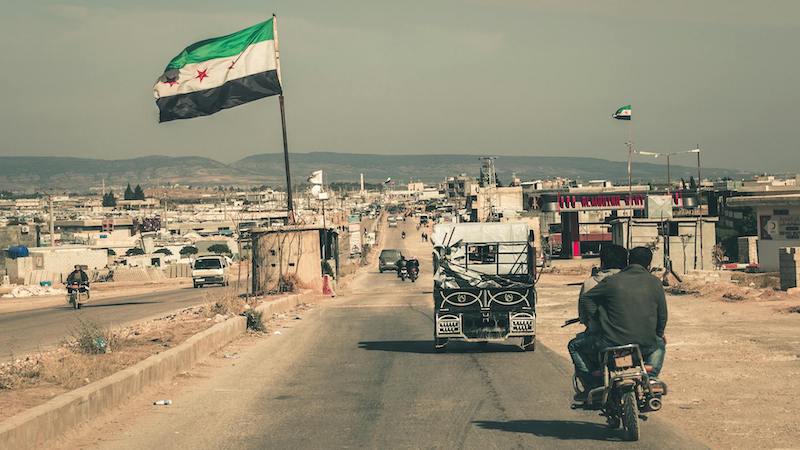The new Syrian government receives assistance from Indonesia through a dual strategy that combines both humanitarian support with diplomatic strengthening alongside aid for Syria’s post-conflict development.
The Syrian conflict started in March 2011 and destroyed cities and displaced more than 12 million people, and caused the economy to plunge into deep recession. When Bashar al-Assad’s regime collapsed in December 2024, a transitional government took power, thus making international support crucial for rebuilding healthcare systems and agricultural growth, and community rebuilding for returning families. The United Nations projects that 7 million Syrians need humanitarian assistance by 2025 because 7.2 million people remain displaced inside the country, and 6.2 million refugees live in neighboring states, thus proving the need for coordinated global intervention.
The commitment of Indonesia exists through non-alignment principles combined with respect for sovereignty and humanitarian solidarity, which originated from its Bandung Conference legacy and Non-Aligned Movement leadership. In 1950, Jakarta established diplomatic relations with Damascus, which made it one of the first nations to support Syrian independence. Through UN channels, Indonesia provided $500,000 annually in relief funds during the civil war from 2012 to 2014 while advocating for ceasefires to prevent civilian casualties without breaching its non-interference policy.
The National Agency for Disaster Management (BNPB) and the Indonesian Red Cross (PMI) expanded their humanitarian efforts in 2025 through medical team deployments and supply deliveries, and mobile clinic operations. The teams performed more than 25,000 medical consultations and vaccinated 80,000 children while delivering 2,500 tons of medicine and tents between January and April. The collaboration between Jakarta and UNICEF and the World Food Programme enabled the rehabilitation of water systems in Aleppo and Homs, resulting in clean drinking water availability to 150,000 residents and a 40% reduction in waterborne diseases.
The geopolitical strategy of Jakarta considers Syria as a fundamental connection that serves the broader Middle Eastern region. Indonesia promotes Middle Eastern multipolarity through its support of Syrian independence and democratic institutions because the region is transforming through Israel-Gulf normalization agreements and Saudi-Iran strategic competition, and U.S. military posture changes. Through its constructive engagement with Damascus, Jakarta positions itself as a moderate Muslim democracy that connects East and West and Sunni and Shia communities, thus strengthening its position within the Organisation of Islamic Cooperation and the broader Islamic world. Indonesia maintains a unique position in Middle East politics through its focus on principled diplomacy combined with grassroots humanitarian efforts and non-aligned mediation, which sets it apart from its regional competitors, including Malaysia and Singapore.
The Ninth Brussels Conference on Syria in March 2025 brought Indonesia together with more than fifty nations to support a UN Special Envoy’s plan for political reconciliation and reconstruction funding. Through its diplomatic backing, Jakarta demonstrated its ability to unite various groups while maintaining that lasting peace requires institutions transparently led by Syrians. The stance adopted by Indonesia distinguishes the country from certain ASEAN member states, which have limited their engagement to transactional approaches; Thailand maintains bilateral project-based aid programs while Indonesia utilizes its large diaspora and NGO networks to build people-to-people relationships, which create trust and mutual understanding.
The economic relations between Indonesia and Syria have started to develop, but show great potential for expansion. During their April 2025 meeting in Jakarta, the parties established memoranda that detailed Indonesian investment plans for repairing roads and rebuilding electrical networks and water distribution systems. The agricultural partnership between Indonesia and Syria focuses on modernizing irrigation systems in the Hama governorate to increase cereal and olive production through Jakarta’s agroforestry methods, which aim to boost yields by 25 percent within three years. According to the Ministry of Trade of Indonesia, the bilateral trade between the countries will reach $50 million by 2026 through exports of machinery and fertilizers, and technical services. These initiatives, derived from UN Economic Commission for Europe consultations, will drive local job creation while enhancing food security and show that middle powers can excel in post-conflict reconstruction activities that larger actors commonly ignore.
The support from Indonesia faces important challenges at present. Security risks continue to exist because armed groups persist, and unexploded ordnance prevents aid distribution and infrastructure development. The combination of damaged highways and limited transport corridors has resulted in a 30 percent increase in logistics costs compared to pre-war times, according to UN logistical assessments. The 2025 Syria Humanitarian Response Plan received only US$ $1 billion in funding from donors, even though it requested US$ $4 billion, which threatens to cut off essential services for 8 million people. The World Food Programme identifies a US$ $335 million funding deficiency, which endangers school-meal programs and nutrition assistance for 9 million food-insecure Syrians. Jakarta needs to implement transparent aid allocation systems to demonstrate the humanitarian effects of foreign aid while managing its domestic financial constraints for pandemic recovery and infrastructure development.
The upcoming years will bring opportunities for Indonesia to boost its impact through stronger multilateral relations and participation in ASEAN’s developing crisis management system. The donor confidence and operational scope will increase when the Syria Humanitarian Response Plan receives more resources through strict financial oversight measures. The combination of Syrian scholarship and vocational training for engineers and healthcare workers, and agronomists will help develop local capacity and social unity through community-driven reconstruction projects that follow Syrian priorities. The approach of Jakarta demonstrates how middle powers can create lasting positive changes in post-conflict regions through their combination of technical assistance with inclusive recovery projects.
In conclusion, the Indonesian support for the new Syrian government demonstrates a strategic combination of humanitarian assistance and political vision. The relief efforts combined with diplomatic support and new economic partnerships allow Jakarta to help Syria recover while demonstrating its position as a central force in the divided Middle East. The non-aligned principled engagement combined with robust people-to-people diplomacy enables Indonesia to differentiate itself from ASEAN peers and regional rivals, thus demonstrating how responsible middle powers can establish peace and sovereignty and achieve long-term stability in conflict-affected regions.
The opinions expressed in this article are the author’s own.
References
